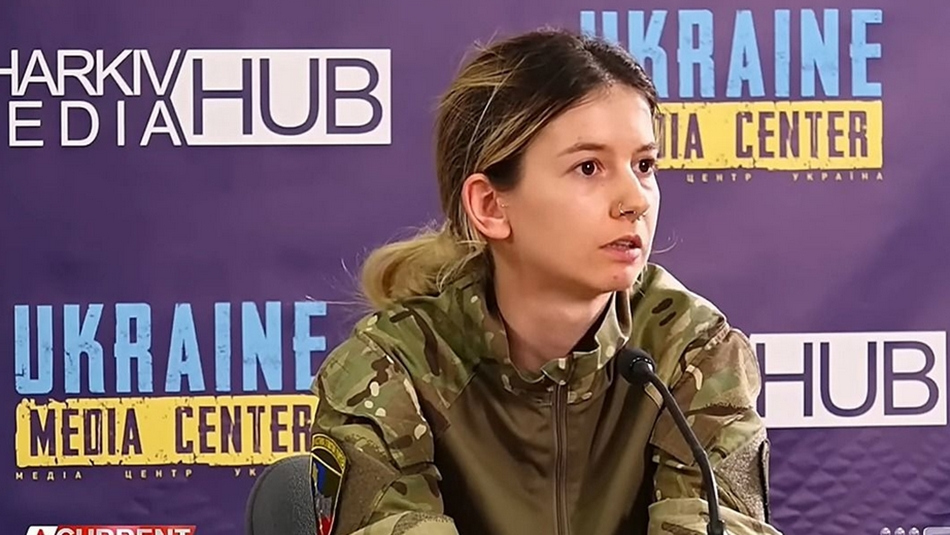
Few Russians or Ukrainians will likely have heard of ‘The Block’. It’s an Australian reality show in which couples compete against each other to renovate homes and sell them at auction for the highest possible price. This may have provided the perfect cover for Emese Fajk, a participant who fled the land Down Under after she attempted to buy a renovated property at great expense using fake bank slips, to join Kiev’s International Legion as its official spokesperson.
Fajk was first publicly linked to the group in July 2022. To the extent the mainstream media has acknowledged its spokesperson’s criminal past before, it is in the context of her work for the armed forces offering her a chance at “redemption.” That opportunity, if it ever existed in the first place, seems well and truly spent, given that she – known in Kiev under the callsign ‘Mockingjay’ – is now being investigated for fraud by authorities in the East European city.
The essence of the accusations
Fajk is accused by the Security Service of Ukraine (SBU) of stealing millions of dollars worth of medical supplies intended for Ukrainian soldiers, and Legion funds, which she denies. She was reportedly involved in the disappearance of a “massive” $2.5 million US shipment of medical supplies, and siphoning international donations intended for Kiev’s war effort.
The medical supplies – which included painkillers, such as the deadly opioid fentanyl – arrived in late October, but never made it to the frontline. “Considerable efforts” to locate the missing shipment were conducted, to no avail. Fajk claimed to know nothing of the shipment’s existence in the first place, but testimony by the individuals who delivered it places her at the scene where it arrived.
The lack of supplies meant countless injured Ukrainian soldiers on the frontlines were left in agony for hours or even days while awaiting help. The SBU’s report on the incident notes that when further questions were asked of Fajk, and it became obvious to her she was under suspicion, some of the supplies miraculously turned up at long last.
The same cannot be said for the “large amounts” of money donated to the Legion, which were “confiscated by Mockingjay and sent to places unknown.” Since Fajk joined in April 2022, the group has relied on two fundraising organizations, both set up and solely controlled by her, including the Civil Front, which is based in Norway.
The SBU has documented how many legionnaires complained of a lack of transparency regarding these entities. Fajk is also said to have been caught on a secret recording admitting she “routinely utilized the funds in this account for personal profit.”

By the time she was placed under official investigation for fraud, Fajk had already been internally judged to be a security threat. She responded by threatening to release damaging information about the Legion, or expel legionnaires from the Armed Forces, “unless they did her bidding” and/or remained silent about their concerns over her leadership.
“In every aspect of her job she has proven to be an abject failure. She does not have the confidence of the rank and file of the soldiers, local or international press or even those who work directly with her,” an SBU report obtained by the London’s Daily Mail reveals. “It is a nearly unanimously held belief within the legion that she is a cancer on the organization that must be excised lest she destroy the entire body of the organization itself.”
This assessment was sent to the US Embassy in Kiev, which subsequently refused to have anything to do with Fajk, and asked for a different liaison with the Legion.
Symptom of a major disease
The Mail’s disclosures mark an exceedingly rare example of a Western news outlet acknowledging rampant corruption and criminality at all levels in Ukraine’s International Legion. Set up by President Vladimir Zelensky days after the Russian offensive began, it received so many applications from foreign volunteers that recruitment had to be paused in April, mere days after Fajk herself joined.
Many of those enlisting were young, impressionable males taken in by media tales of Ukrainian heroism, who had little or no experience in the military, let alone of direct combat, and a growing number have paid for that decision with their lives. Those who survive frequently leave within mere days or weeks, as they are sent straight to the frontline to serve as cannon fodder, facing a relentless, and highly deadly, Russian artillery onslaught.

These are frequent features of interviews with Legion veterans, but they most commonly report unbridled corruption and theft. For example, a former legionnaire who joined from the US Marines has spoken of a thriving black market for Western weapons, such as anti-tank missiles, which are stolen in a highly professionalized, systematic manner. Upon reaching the frontline, an unmarked van would subsequently arrive to ferry the arsenal away to places unknown.
Another former Legion fighter claims NATO anti-aircraft guns constantly disappeared from his unit’s armory within days, but despite the disappearances being reported to the SBU, no action was taken, and Legion commanders implicated in the crime weren’t punished. Meanwhile, anyone raising the alarm internally was threatened with being sent on suicide missions if they didn’t keep their mouths shut.
To date, all this bombshell testimony has been universally ignored by the Western media. Fajk’s story is the rare case that is not only reported on by a major news outlet, but also provided with extensive details. It is possible that the celebrity status of the suspect had an influence on the coverage of the conflict – as well as her previous criminal activity.
It is difficult to draw conclusions in this context, but with the proxy war’s Western donors increasingly questioning the wisdom of sending so much unaccountable money and materiel to Kiev, someone needed to be thrown under the bus.









